Preliminary Concept
The envisaged Afghanistan Online University aims at providing young persons of Afghan origin living outside Afghanistan – notably those living in refugee camps and other precarious settings – the opportunity of acquiring general professional competencies as well expertise on Afghan culture and society. A comprehensive system of online teaching, learning, and examination concurrently aims at ensuring the accessibility of the study provisions for young persons living in Afghanistan. Students will be prepared to be professionally active in tune with their competencies all over the world as well as to contribute to a desirable future of Afghanistan.
A mix of professors and junior academics both from various countries of the world and of Afghan origin – among them those having lost the opportunity of serving universities in Afghanistan – can contribute to academic quality in all disciplines represented as well as to the enhancement of knowledge on Afghan culture and society. Cooperation in teaching and research will be encouraged between scholars employed at this online university, those at a partner institution to be found for each discipline, and persons from many countries and institutions to be involved on a part-time basis.
Study programs on bachelor and master level, similar in length to the dominant “Bologna” practices, as well as doctoral training will be provided – as customary at most open universities in the world – in the humanities, social sciences, information and computer science, and economic sciences, actually in 10 fields: Language and literature, education, psychology, social work, sociology, political science, journalism/communication science, economics, business studies, and information and computer science. Master programs might specialize in certain topics (e.g. natural resources management) or be of interdisciplinary nature (e.g. gender studies). These fields are likely to be enriched by a creative dialogue between the theories, methods, and findings as well as the specifics of culture and society of Afghan culture and society. No study programs are envisaged in fields requiring substantial laboratory work or internships, of a clear universalistic knowledge base as well as with a sole national or regional thrust. Further education and continuing professional education programs might be added in the future.
Altogether, 60 professors and the same number of junior academic staff (FTE), supported by a substantial number of administrative staff, have to be employed for the ten disciplines to cover half of the teaching assignments and to be the backbone of research. A quarter of teaching each will be taken care of by scholars of the partner institutions and by scholars from all over the world being involved part-time. Altogether, about 5,000 students can be accommodated, and a further increase can be realized with limited additional resources.
The university will strive for high academic quality, a convincing link between academic quality and professional relevance, a guarantee of academic freedom, as well as support of the academic areas and of those persons suffering most under current adverse political conditions in Afghanistan, i.e. ethnic and religious minorities as well as women.
This online university can be implemented most likely as a private university in Germany or in another continental European country. The legal framework and the organizational setting might be adapted largely to the customs of the hosting country. However, a strong position of the University Council as well as of an academic commission is needed to reinforce a convincing profile of the institution and ensure a say for the major stakeholders.
A campus of the online university close to a major university of the hosting country could be valuable for access to the library and the computer system. Provisional estimates call for financial support of about 30 million € annually as well as further support for scholarship and research promotion.



